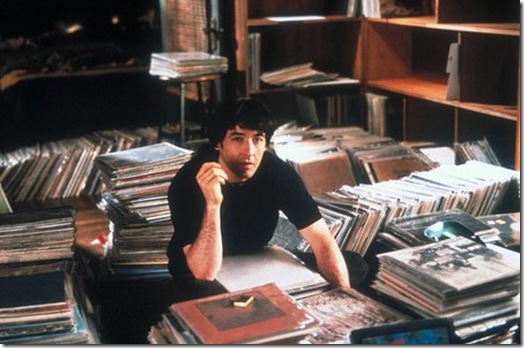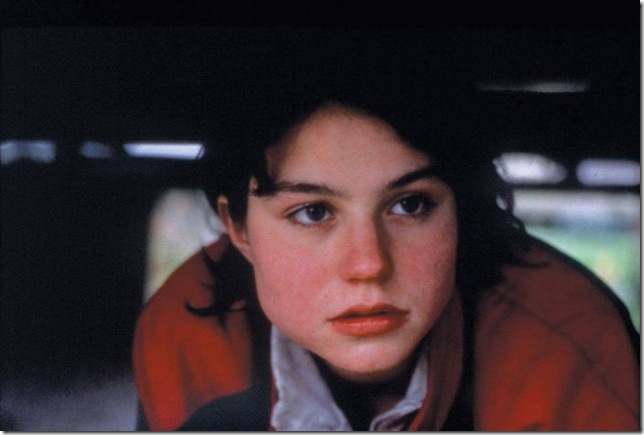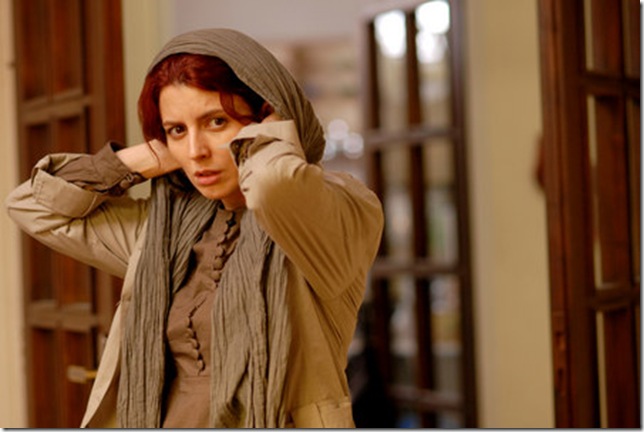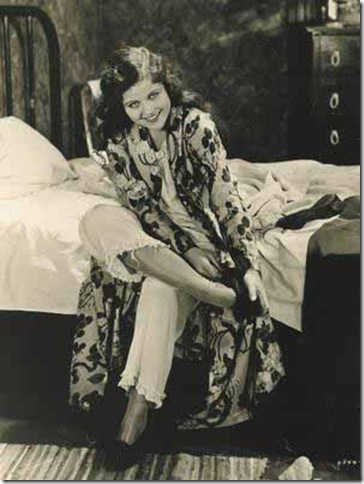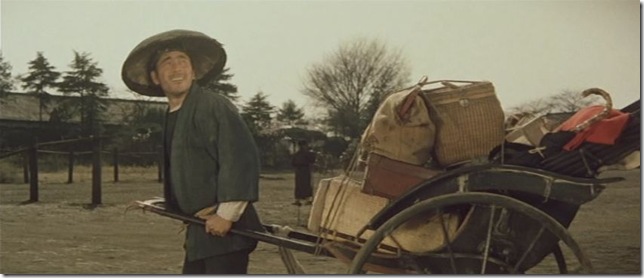It’s difficult for me to write about Grosse Pointe Blank and especially High Fidelity with any degree of objectivity.
For almost 10 years since its theatrical release, High Fidelity held the unshakable position of my favorite film of all-time. This might sound like an eccentric or dubious choice coming from a lover of Tarkovsky, Bresson, Godard, et al. So be it. For the past few years, my all-time favorite movie has been Robert Altman’s Short Cuts, but after viewing High Fidelity again on a gorgeous Blu-ray transfer (Touchstone, $14.85), it might just retake the championship belt.
High Fidelity hit theaters in 2000, capping off one of John Cusack’s most prolific and artistically satisfying decades. There are many who think Cusack’s string of ’80s counterculture comedies – starting with a small role in Sixteen Candles and continuing on through The Sure Thing, Better Off Dead…, One Crazy Summer and Say Anything… – constituted the actor’s apex. I prefer the eclectic ’90s of The Grifters, Bullets Over Broadway, the underrated Road to Wellville, Grosse Pointe Blank, The Thin Red Line and Being John Malkovich to his overrated teen period.
I’m assuming we can all agree that he’s lost his way since the turn of the century, having found himself mired in an offensive disaster flicks and inoffensive family fare, bloated horror films, preachy antiwar screeds and most recently a head-scratching turn in an Edgar Allen Poe biopic. Thus, High Fidelity remains the last masterpiece he has made.
I use the term “made” as I would for a director, because I believe Cusack to be the primary shaper of his products and his onscreen persona – at least back then.
Through his ’80s pictures and especially Grosse Pointe Blank and High Fidelity, Cusack’s characters shared a lot in common with one another, despite being directed by different people. Even in a formula picture like 2001’s Serendipity, Cusack and Kate Beckinsale connect over a worn copy of Love in the Time of Cholera, which Cusack’s character in High Fidelity cites as a favorite book. Cusack’s best characters may take on different professions and channel different anxieties, but they’re all made from the same cultural DNA.
In Grosse Pointe Blank (also new to Blu-ray from Touchstone, $14.85), Cusack is Martin Blank, a professional hit man whose crisis of conscience comes to a head over the weekend of his 10-year high school reunion in Grosse Pointe, Mich. In High Fidelity, he’s Rob Gordon, a grumpy Chicago record-shop owner recounting his most damaging break-ups while trying to win back his most recent ex. Both characters surround themselves with music that is typically Cusackian, given that he helped select the soundtracks for both pictures: The Clash, Violent Femmes and Pixies for the retro Grosse Pointe Blank and Stereolab, Smog and the 13th Floor Elevators for the music nerd’s paradise of High Fidelity.
I’m not ashamed to admit that I discovered several important artists by scanning the scenic design of High Fidelity’s enviable record store, Championship Vinyl, as well as Rob Gordon’s apartment, with its prominent posters for great bands like the Ladybug Transistor and Pavement. (Indeed, it’s worth mentioning how lived-in High Fidelity feels. As much as it’s a painfully accurate dissection of the male mind, it’s also a perfect representation of the life and environment of a disaffected city dweller. It’s still hard to believe that this most American of American films was directed by Stephen Frears, one of the most quintessentially British directors in England’s film history.)
But I also connected with High Fidelity because, for a long time, I too was unhappy in love, preferring to bury my brain in headphones. I also grouped things into Top Five lists and espoused theories about the perfect art of the mixtape and the importance of common interests over personality traits. I also hung out with people who were more socially awkward than myself, the buddies Rob Gordon calls the “musical moron twins.” I was only 17 when I saw High Fidelity for the first time, but I already recognized the guy on the screen as me, or at least who I was becoming – which speaks to Cusack’s appeal. He’s not macho or dashing or “cool” or especially good-looking; he’s the wallflower’s everyman, a surrogate for an untapped audience.
Anyway, High Fidelity moves as fluidly as any film I can conjure, and it has an addictive quality embedded in its celluloid. I can’t stop watching it once I’ve started, even though I know its dialogue patterns and editing rhythms like the proverbial back of my hand. It’s almost as if I’m caught in a trance, like I’m one of those teary tweens that has seen Titanic 20 times.
Grosse Pointe Blank isn’t quite as exceptional or iconic, but it makes up for it in the fun factor, and it’s unique among rom-coms for its brutal violence. Revisiting both of these movies is like reconnecting with a couple of old friends – and watching them both again for the umpteenth time is a lot more enjoyable than surfing Facebook.
Aug. 7: In the absorbing documentary Foreign Parts (Kino, $24.99), directors Verena Paravel and J.P. Sniadecki spent the better part of two years filming life in the cluster of junkyards, car repair and auto body shops that comprise Willets Point, an industrial “blight” in Queens, NY. Their approach is less linear than fragmented, searching for stories here and there; we see a man freebase cocaine in plain view of the camera (and a police cruiser driving past); a man arrives back at Willets Point after some time in prison; and a woman describes that she has to sleep in her car on the premises, carrying a tire iron nearby for protection. All the while, the specter of redevelopment, currently in progress, threatens to displace the workers and business owners who make their meager living in the muddy industrial park. The directors have a poetic camera eye and a journalistic sensibility, finding inspiration somewhere between Terence Malick and Frederick Wiseman. Their depiction of an ethnic cross-section of the American poor is enlivened by evocative images of disgorged car parts, dragged along the cement like hulking metal carcasses. We know that, like the cars they pummel for parts, their livelihood is at stake, and Foreign Parts acts as a heartbreaking metaphor for any community or culture uprooted by “progress.”
Elsewhere, Olive Films continues to lead the market in Blu-ray reissues of classic titles, and this week we’re treated to an immaculate transfer of John Ford’s 1950 adventure Rio Grande ($19.99). The conclusion of Ford’s Calvary trilogy finds John Wayne playing Kirby Yorke, a Union officer training his tenderfoot son, among other recruits, for a pending conflict with Apaches. An already difficult situation is complicated further by the arrival of his estranged wife Kathleen (Maureen O’Hara, in the first of five collaborations with Wayne), who aims to take her son away from the brutalities of battle. As Kirby says, war is a “life of suffering and hardship, not glory,” but Ford films this plaintive masterpiece with a cinematographic beauty and a depth of feeling that transcended most of his peers. As good as the battle scenes are, Rio Grande endures for its moments of quiet contemplation and unspoken longing between Wayne and O’Hara; Ford is brilliant at excavating the emotional chasm between them, and as usual he brings the most out of Wayne. A perfectly calibrated riff on duty, justice, morality and family, Rio Grande is also a veritable musical, colored at precise intervals by lovely folk songs performed by its eclectic cast.
Aug. 14: Brothers Luc and Jean-Pierre Dardenne, from Belgium, make some of the most uncompromising films in world cinema. They capture their often-broken characters in real-time slices of life, following them everywhere like incessant, inquisitive insects, and rarely if ever allowing their actors the breathing room of an edit. “We’ll fix it in post” is not a term that has been uttered on a Dardenne Brothers set.
This week, Criterion releases two of their most cherished titles, La Promesse and Rosetta ($24.99 DVD, $34.99 Blu-ray). In the former, which saw the Brothers’ transition from documentaries to features, a boy comes of age after discovering that his father is exploiting undocumented workers. And in the latter, which ranks as one of the most emotionally draining movies I’ve ever seen, a desperate young girl deals with a dead-end job and her alcoholic mother. As usual, the corruption of innocent youth is incited by the amoral foibles of adult parental figures, a theme that runs right on through the duo’s 2012 feature, The Kid With a Bike. Special features on these discs include new and archived interviews with the cast and crew.
Also this week, don’t miss the most definitive edition yet of Louis Feuillade’s groundbreaking serial Les Vampires (Kino, $31.46 DVD, $34.99 Blu-ray). Possibly the first gangster movie, this 10-part, seven-hour film from 1915 is a landmark in the development of cinematic grammar and texture. Elsewhere, The Royal Tenenbaums premieres on Blu-ray (Criterion, $27.86), and Jaws also makes its long-awaited Blu-ray debut (Universal, $19.96, includes DVD and digital copy), released in celebration of Universal’s 100th anniversary. You’ll need a bigger boat to encompass all the extras in this collection, well-priced for you get: The Shark is Still Working is an all-new feature-length documentary about the film and its legacy, and other lengthy supplements include The Making of Jaws, Jaws: The Restoration and Marketing Jaws.
Aug. 21: This week is a perfect representation of Olive Films’ ongoing efforts to churn out home-video releases for some of the more obscure titles by notable directors. We get Don Siegel’s Private Hell 36 ($22.83 Blu-ray, $18.83), a tawdry, archetypal noir; Leo McCarey’s My Son John (same prices), a controversial drama about a conservative couple who suspect their son may be a Communist spy; and Mitchell Liesen’s Captain Carey, USA (same prices), a politicized, noirish spy story set in the aftermath of World War II.
Newer titles this week include the best-reviewed movie of 2011 (for good reason), A Separation (Sony, $24.99 Blu-ray, $19.99 DVD). The Oscar winner about faith, class, morality and the law in contemporary Iran is a border-transcending masterpiece. And the new documentary Payback (Zeitgeist, $24.99), based on Margaret Atwood’s best-selling book of the same name, explores a world under debt in various forms: societal, personal, environmental, spiritual, criminal and economic. This broad thesis allows for segments on the BP oil spill, an imprisoned media mogul and mistreated Florida tomato farmers, all under the umbrella of debtor/creditor relationships.
Aug. 28: Only the most ardent cinephile knows the name Paul Fejos, but that may change with the release of his much-anticipated feature Lonesome (Criterion, $27.99 Blu-ray, $26.96 DVD). A contract player at Universal while he was also an explorer, anthropologist and doctor, Fejos made this city symphony in 1928, shooting on Coney Island during a bustling Fourth of July weekend. Color tinting, inventive camera and editing techniques and three dialogue scenes show Fejos to be at the forefront of cinema’s innovations. Lonesome runs just 69 minutes long, but this disc includes two other features – The Last Performance, 1929 silent starring Conrad Veidt, and Broadway, a reconstructed version of Fejos’ incomplete musical from the same year.
TCM Watch: TCM continues its “Summer Under the Stars” series all month long, with each day and night in August showcasing one iconic star. An Aug. 9 tribute to Toshiro Mifune includes a lot of terrific Akira Kurosawa films, but most notably, at 4 a.m., be sure to record The Rickshaw Man, a 1958 feature from the Samurai series director Hiroshi Inagaki that has never been released on home video.
Lillian Gish’s night on Aug. 15 includes a rare screening of Victor Sjostrom’s The Wind at 11:30 p.m.; this 1928 drama about intolerance has not seen a DVD release. On Aug. 22, a Jack Lemmon celebration includes a 4:15 a.m. screening of Billy Wilder’s Buddy Buddy, a 1981 gangster comedy with Walter Matthau and the final film Wilder would direct. Finally, as part of an Ingrid Bergman day on Aug. 29, catch two films by the great Roberto Rossellini that have not seen DVD releases in the States: Stromboli (2 p.m.) and Europa ’51 (4 p.m.).
